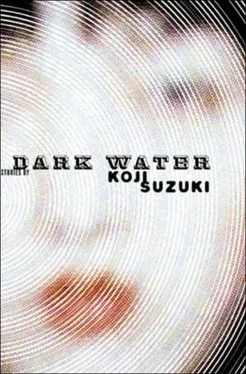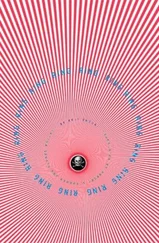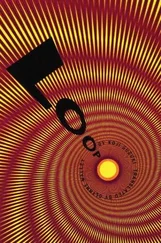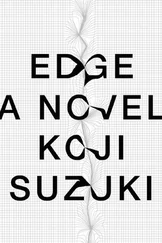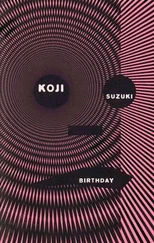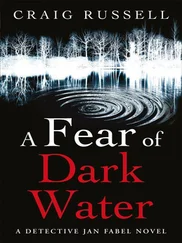Koji Suzuki - Dark Water
Здесь есть возможность читать онлайн «Koji Suzuki - Dark Water» — ознакомительный отрывок электронной книги совершенно бесплатно, а после прочтения отрывка купить полную версию. В некоторых случаях можно слушать аудио, скачать через торрент в формате fb2 и присутствует краткое содержание. Год выпуска: 2006, ISBN: 2006, Издательство: Vertical, Жанр: Ужасы и Мистика, на английском языке. Описание произведения, (предисловие) а так же отзывы посетителей доступны на портале библиотеки ЛибКат.
- Название:Dark Water
- Автор:
- Издательство:Vertical
- Жанр:
- Год:2006
- ISBN:9781932234220
- Рейтинг книги:3 / 5. Голосов: 1
-
Избранное:Добавить в избранное
- Отзывы:
-
Ваша оценка:
- 60
- 1
- 2
- 3
- 4
- 5
Dark Water: краткое содержание, описание и аннотация
Предлагаем к чтению аннотацию, описание, краткое содержание или предисловие (зависит от того, что написал сам автор книги «Dark Water»). Если вы не нашли необходимую информацию о книге — напишите в комментариях, мы постараемся отыскать её.
, which spawned the hit film and sequels. The first story in this collection has been adapted to film (
, Walter Salles), and another, “
” is currently in production with Dimension Films.
Naoki Prize Nominee (1996) Izumi Kyoka Prize Nominee (1996)
Dark Water — читать онлайн ознакомительный отрывок
Ниже представлен текст книги, разбитый по страницам. Система сохранения места последней прочитанной страницы, позволяет с удобством читать онлайн бесплатно книгу «Dark Water», без необходимости каждый раз заново искать на чём Вы остановились. Поставьте закладку, и сможете в любой момент перейти на страницу, на которой закончили чтение.
Интервал:
Закладка:
A year after the news of his father’s death had reached the family, the film case containing a copy of the map had been delivered to the Sugiyamas. On the reverse side of the map were words that testified to his father’s final deed. It was a letter from his father, likely written immediately before he died.
There could be no doubt that water linked this underground lake with Tokyo Bay. The water flowed first into a tributary then into the thicker line of the River Tama, which emptied itself out into Tokyo Bay. Yet, what were the chances of a letter delivered this way arriving to the addressee? Surely it could only be described as a miracle. And yet, the sublime strip of light making its way through the aperture had the power to make one believe in just such a miracle.
They had found the letter in their mailbox. It had been delivered in the film case, although the package bore no sender’s name, thus making it impossible to determine who had found the letter or when it had been found. They could only imagine that it had been discovered by a resident of the Okutama area; else it had become entangled in the nets of a fisherman plying the stretch of sea near the mouth of the Tama. Whoever the finder, he or she had taken the note from the film case and read it, and appreciated the importance of the message to the family for whom it had been intended. He or she had also been kind enough to send it to the Sugiyamas.
The letter said:
Dear Takehiko,
Even when we know there is no way out, we sometimes have to press ahead in search of one, no matter how dim the prospects.
I know I can count on you to take good care of your mother and the child soon to be born.
With love,
Your father
Without a shadow of doubt, it was his father’s handwriting, every letter imprinted firmly. The letter was proof that his father had been prepared to meet his death.
It was clear why his father’s body had been found near the outlet below a subterranean lake. Knowing that there was no way out, his father had yet sought a way and tried the submerged tunnel; the attempt could end in failure, but at least he’d send his son a letter willing him a fearless determination to survive. He had not addressed the letter to his wife. He’d wanted to convey to his son — then too young even to read the letter — the message to be strong.
The letter had proved an invaluable source of strength to Takehiko. He’d read it over and over again. When life called for courage, he recalled his father’s words and the difficulties he’d tried so hard to overcome. Takehiko had had only two and a half years with his father and now hardly even remembered those days. Yet the darkness that his father had faced pursued Takehiko into his dreams, making him gasp for air. Every time he awoke from the dream, he felt only more determined to be strong. Because he had the letter, there was nothing he feared in life.
He thrust his arm into the crevice up to the shoulder, and slowly pulled it back. If the opening had only been twice as wide, his father’s wish would have been granted; he’d have emerged into the radiant light.
Takehiko strove to imprint the sight before him in his memory, so he’d never forget. And he said in his heart, “Dad, I got your will.”
EPILOGUE
In the old days, Cape Kannon used to be called Cape Hotoke, or Cape Buddha. Although almost seventy-two, Kayo had never heard the cape called by the older name.
In the dawn of an early spring morning, Kayo briskly walked the route she always took on her strolls. The Buddhist goddess of mercy, Kannon, was supposed to extend the hand of salvation to all who called upon her. Kayo believed in Kannon, and had made it a rule to come this way on her morning stroll for the past twenty years.
Whether “Kannon” or “Hotoke”, the name of the cape had welcome associations. If nothing else, the name revealed that the cape was a place marked by history. In fact, the walk along the promenade revealed among the bushes what were either jizo roadside statues or tombstones. The things were no doubt originally placed there to appease the souls of the dead who’d been washed ashore on the promontory, but none of the local residents had any idea how or why the artefacts had been installed. In any case, there were surprisingly many of them on and around the cape.
It was not yet fully light as Kayo made her way along the path skirting the sea. In a slightly stooped posture, she walked with her eyes cast down. Once the spring holidays arrived, her granddaughter Yuko would come and visit her, and Kayo would be able to take her granddaughter along on her walks. A walk, she felt, was always a little bit more worthwhile with someone by your side.
Her spectacles steamed up with her own breath; Kayo slowed down and looked at the pedometer fastened to her waist. It was hardly necessary for her to check. She could usually guess how many paces she’d walked and was never off by more than a few paces either way. This kind of accuracy was to be expected. After all, she’d been in the habit of walking this route almost every day for the past twenty years.
Coming to a halt in front of a cave of crumbling rock, she looked at her pedometer, which showed exactly two thousand paces. This meant that she had covered roughly a mile since leaving her home in Kamoi. Stretching her back, she walked toward the sea, bringing her two hands together in prayer as she faced the rising sun. The words of her prayer had not changed much over the past two decades. She prayed for the health of her two sons, the one who lived in Tokyo and the one who lived in Hokkaido, and for their families. Now and then, whenever the need arose, she prayed for something she wanted, but never more than one thing. She’d never pray for too much. Kayo believed that if you stood on the tip of Cape Kannon and prayed to the rising sun, all your wishes came true. She’d been petitioning the sun less than two months when her son called to triumphantly announce that he’d been promoted to section supervisor, at an early age.
It’s thanks to the goddess Kannon,” Kayo told him.
“Ha! I think it was thanks to my being very good at what I do,” her son replied, laughing.
Originally taken up as a form of rehabilitation, her early morning walks were now undertaken purely for the well-being of her family.
It was now twenty years since Kayo had collapsed on a street corner in Yokosuka. At the time, she had been in her fifties. An ambulance had taken her to hospital, where she had been diagnosed as having suffered a subarachnoid haemorrhage. Her condition required immediate surgery. As luck would have it, the operation was successful, but left her with the temporary inability to walk properly. For several months after leaving the hospital, she had to lean on her husband’s shoulder to walk. She had now recovered to an extent that it was no longer immediately noticeable that she dragged her left foot. At one point her spirits sank very low when she thought that, for the remaining years of her life, there would never be a time when she wouldn’t have to limp. Yet her success in overcoming the impediment had boosted her confidence so much that she felt she’d gained a new lease on life. She felt more truly alive after the operation than before. As Kayo would have it, this too was a blessing from the goddess Kannon.
While Kannon may have had a hand in Kayo’s robust recovery, there was one more reason for her renewed vigour. It began as a strip of light that had caught her eye. She could see it even now, for the scene had imprinted itself on her retina. The strip of light emanating from a tidal pool on the beach had been one of the main reasons why she’d become so particular about taking her walks every morning like clockwork. It had happened almost twenty years before, about six months after she was released from the hospital.
Читать дальшеИнтервал:
Закладка:
Похожие книги на «Dark Water»
Представляем Вашему вниманию похожие книги на «Dark Water» списком для выбора. Мы отобрали схожую по названию и смыслу литературу в надежде предоставить читателям больше вариантов отыскать новые, интересные, ещё непрочитанные произведения.
Обсуждение, отзывы о книге «Dark Water» и просто собственные мнения читателей. Оставьте ваши комментарии, напишите, что Вы думаете о произведении, его смысле или главных героях. Укажите что конкретно понравилось, а что нет, и почему Вы так считаете.
